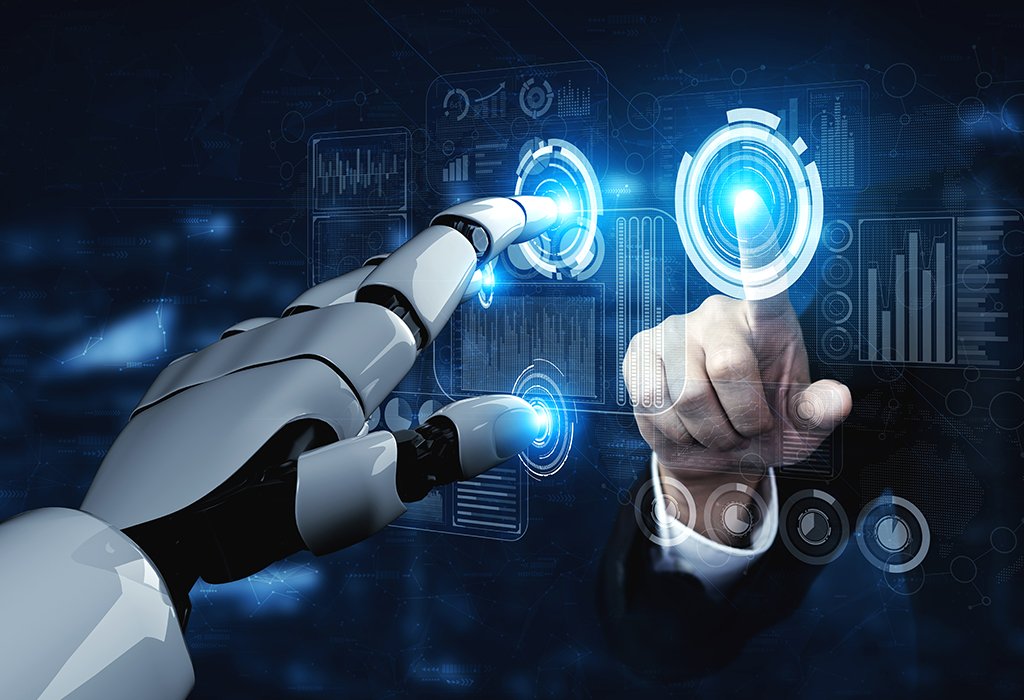Artificial intelligence (AI) has become a ubiquitous term, splashed across headlines and woven into the fabric of science fiction. From self-driving cars to robot assistants, AI promises to revolutionize our world. But beneath the hype lies a complex reality. Is AI truly on the cusp of transforming everything, or are we getting lost in a wave of unrealistic expectations?

There’s no denying the significant advancements in AI. Machine learning, a powerful subset of AI, has fueled innovations in facial recognition, medical diagnosis, and natural language processing. AI algorithms can analyze vast amounts of data, uncovering hidden patterns and making predictions with ever-increasing accuracy. This has led to real-world applications, from optimizing traffic flow in cities to personalizing recommendations on your favorite streaming service.
However, the hype surrounding AI often paints a picture of sentient machines on the verge of taking over. This portrayal feeds into a cycle of unrealistic expectations. When these expectations aren’t met immediately, disappointment sets in, leading some to believe AI is all talk and no action.
Here’s a closer look at why AI might be overhyped, and why it still holds immense potential:
The Limits of Current AI:
- Narrow Focus: Today’s AI systems excel at specific tasks, but lack the general intelligence of humans. An algorithm trained to play chess will struggle to write a poem.
- Data Dependence: AI is heavily reliant on data. The quality and quantity of data directly impact an algorithm’s performance. Biased data can lead to biased results, raising ethical concerns.
- Explainability Challenge: Many AI systems function as “black boxes.” We understand the inputs and outputs, but the internal decision-making process remains opaque. This lack of transparency can be problematic, especially in high-stakes applications.
Hype vs. Reality:
- Sentient Machines: The idea of AI surpassing human intelligence (artificial general intelligence or AGI) is a distant future, if achievable at all. Current AI systems lack the consciousness and common sense that define human thought.
- Job Apocalypse: While AI will undoubtedly automate tasks, it’s unlikely to lead to mass unemployment. New jobs will emerge, requiring a shift in skills and retraining for many workers.
- Robot Overlords: Sci-fi portrayals of AI taking over the world are not grounded in reality. The focus should be on developing AI ethically and responsibly, ensuring it remains a tool to benefit humanity.
The Untapped Potential of AI:
Despite the limitations, AI holds immense potential to improve our lives in numerous ways:
- Scientific Discovery: AI can analyze complex scientific data, accelerating research in fields like medicine and materials science.
- Personalized Healthcare: AI can analyze medical records and images to detect diseases early, leading to more effective treatment.
- Combating Climate Change: AI can optimize energy usage and develop sustainable solutions to environmental challenges.
- Enhanced Creativity: AI can assist humans in artistic endeavors, generating new ideas and creative content.
The Road Ahead:
A balanced approach is needed. We should acknowledge both the current limitations and the vast potential of AI. Here are some key considerations for the future:
- Focus on Specific Applications: Developing targeted AI solutions for specific problems will yield the most tangible benefits in the near term.
- Prioritize Ethical Development: Building fairness, accountability, and transparency into AI systems is crucial to ensure responsible use.
- Invest in Research and Education: Continued research is essential to push the boundaries of AI capabilities. Education will be key in preparing the workforce for an AI-driven future.
AI is not a magic bullet, but it is a powerful tool with the potential to reshape our world. By managing expectations, addressing limitations, and focusing on ethical development, we can ensure AI becomes a force for good, augmenting human capabilities and creating a better future for all.
